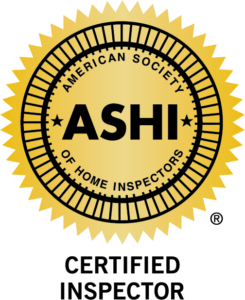Mold is a type of fungus that can grow in wet or excessively humid environments. It can be found indoors and outdoors, and it can cause a variety of health problems. Mold in a home environment needs several conditions present for it to thrive. It needs Oxygen, a food source and water. Mold testing is a way to determine if there is mold issue present in your home and to identify the type of mold. Mold growth inside your home in an indicator of a moisture issue, especially found in basements, crawl spaces or attics. Damage to your home that allows water to gain entry is also a serious problem that needs attention.
Our mold testing service includes an inspection of the areas in question to determine if conditions conducive to mold growth are present as well as appropriate sampling strategies.
- Air sampling: We collect air samples from your home to test for the presence of mold spores in areas determined to be of concern.
- Surface sampling: We collect samples from surfaces in your home that may be contaminated with mold. This is usually done based on a visual evaluation of the area.
- Moisture testing: We use numerous kinds of moisture meters to measure the moisture contest of building materials to further assess and identify the root cause of the problem.
Once we have completed our evaluation as well as appropriate testing, we will provide you with a detailed report that includes the results of our tests, our recommendations for how you should proceed.
We know that mold can be a problematic and confusing issue, but we are here to help you through the process. Mold issues are not always readily noticed by occupants or property owners and may manifest as symptoms such as, headache, stuffy nose, allergic symptoms, asthma, or other respiratory symptoms. We focus on solutions rather than gimmicks and false promises.
Why It’s Important to Have Mold Testing Done
Mold testing is important because it can help to identify and prevent mold growth. Mold can cause a variety of health problems, and it can also damage your home. By having mold testing done, you can take steps to protect your health and your property.
Mold Testing FAQ:
What Is Mold Testing?
Mold testing is a way to determine if there is mold present in your home and to identify the type of mold. There are two main types of mold testing: air sampling and surface sampling.
How Is Mold Testing Done?
Air sampling is the most common type of mold testing. Air samples are collected from different areas of your home using a special pump. The samples are then sent to a laboratory for analysis.
Surface sampling is less common than air sampling, but it can be helpful if you suspect that there is mold growing on a particular surface. Surface samples are collected using a swab or tape. The samples are then sent to a laboratory for analysis.
What Are The Benefits Of Having Mold Testing Done?
There are several benefits to having mold testing done, including:
- Peace of mind: Knowing whether there is a mold issue in your home can give you peace of mind.
- Identification of the type of mold: Knowing the type of mold can help you to determine the best course of treatment and the potential source of the problem.
- Documentation: If you need to file a claim with your insurance company, mold testing can provide documentation of the problem.
- Early detection: Early detection of mold can help to prevent serious health problems.
What Are The Health Risks Of Mold?
Mold can cause a variety of health problems, including:
- Allergies
- Asthma
- Coughing
- Eye, nose, and throat irritation
- Headaches
- Fatigue
- Skin rashes
- Nausea
- Vomiting
- Diarrhea
- Pneumonia
What Are The Symptoms Of Mold Exposure?
If you are exposed to mold, you may experience some of the following health symptoms:
- Allergic reactions, such as sneezing, runny nose, and itchy eyes
- Respiratory problems, such as wheezing, shortness of breath, and coughing
- Skin problems, such as rashes and itching
- Headaches
- Fatigue
- Nausea and vomiting
- Pneumonia
How Can I Prevent Mold Growth?
There are a number of things you can do to prevent mold growth in your home, including:
- Keep your home clean and dry.
- Fix any leaks or water damage immediately.
- Ventilate your home properly.
- Use a dehumidifier in humid areas.
- Avoid storing damp items in your home.
- Clean your air conditioner and furnace filters regularly.
Protect Your Investment, Protect Your Health, Protect Your Family
Mold testing coupled with an thorough inspection can be conducted as part of the pre-purchase home inspection or as a separate service separate from a home inspection. With the increased use of home offices which may be located in the basement, the potential health consequences of spending extended amounts of time in an unhealth environment is much greater.
Mold testing is an important part of protecting your health and your home. If you are concerned about mold, it is important to have your home inspected and potentially tested by a qualified professional.

